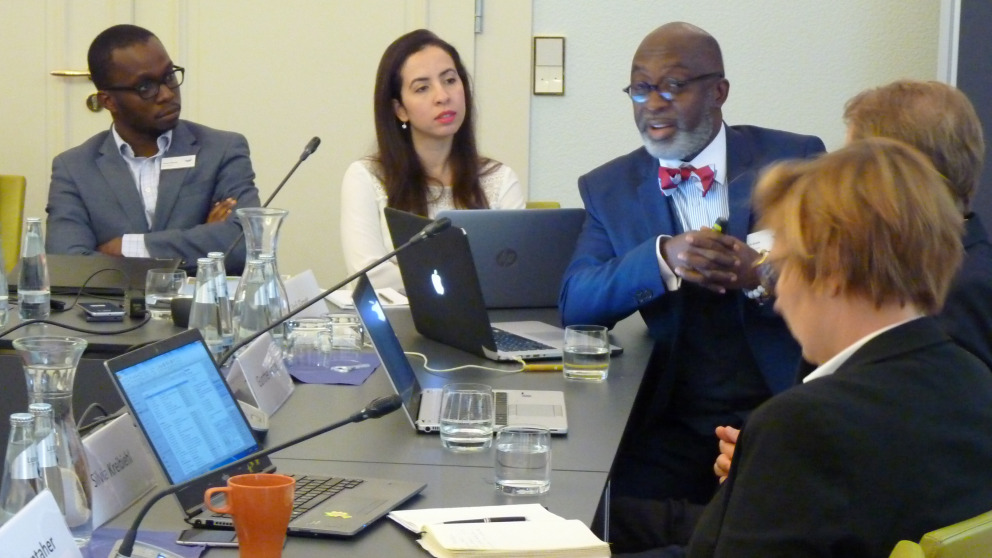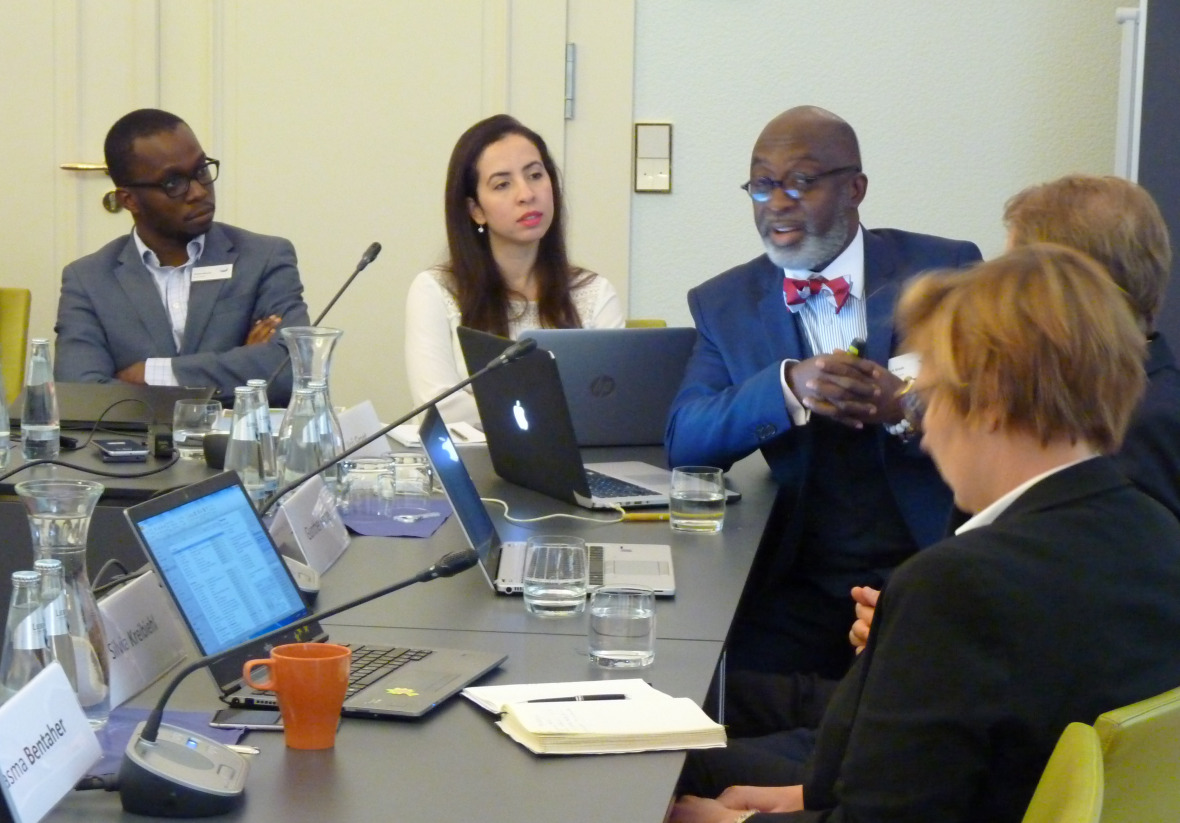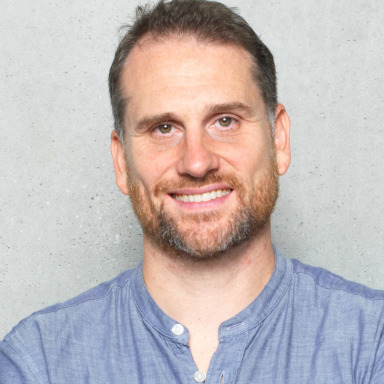Headline:
Investments Needed to Unlock Huge Potential for Renewable Energies for Africa
Workshop on Sustainable Energy and Development

At the Paris Climate Conference (COP21) the African Union and its member states announced the launch of a new renewable energies initiative for Africa (Africa Renewable Energy Initiative - AREI). The initiative seeks to massively expand energy access and will bolster a low-carbon development strategy that will deliver 10 GW of new renewable energy capacity by 2020 and aims to mobilize Africa’s potential to generate at least 300 GW of capacity by 2030. Despite economic growth and promising developments in the provision of energy to remote, off-grid areas, the expansion of renewables in Africa has been sluggish. The continent needs more investment – the question is: what will it take to attract investors? Representatives from science, business, politics and civil society met at the IASS on 28 September to discuss these issues.

AREI: An African initiative for Africa
Roughly two thirds of Africans are without access to electricity services. “This is an immense challenge. But it is also an opportunity. It is an opportunity to transform the emerging low-carbon and decentralized paradigm of energy provision into a development opportunity for Africa,” explained IASS researcher Rainer Quitzow. Important progress has already been made in the development of markets for the decentralized provision of solar power to remote regions.
AREI representative Youba Sokona noted that unlike many other initiatives, AREI was launched by Africans rather than foreign partners. The initiative addresses the needs of the continent’s most important productive sectors and welcomes the participation of diverse interest groups. The Federal Ministry for Economic Cooperation and Development (BMZ) is a major contributor to this initiative and will provide €3 billion of the US$10 billion in funding pledged to AREI at the Paris Climate Conference by 2020. The forthcoming climate conference in Marrakesh (7–18 November) will be an “outstanding opportunity to present progress made by the AREI since its launch,” said Katrin Enting of the BMZ.
Morocco banks on solar power
Basma Bentaher from the Moroccan Agency for Solar Energy (MASEN) spoke at the workshop about the country’s Noor solar power complex. Morocco, which has few oil and gas reserves and is the region’s largest importer of electricity, plans to meet 42% cent of its energy needs through renewable sources by 2020 – rising to 52% by 2030. The first power plant at the solar complex was switched on recently, with others to follow in the coming years. A sophisticated tendering process is one key to the project’s success, explained Bentaher: “It allows us to select developers that are capable of meeting the highest international standards for power plants, coupled with an optimized price per kilowatt hour.” MASEN approves the plants following their completion and is a minority stakeholder in the company.
Circumstances are more difficult in sub-Saharan Africa, explained Yofi Grant from the Ghanaian company Grant-Dupuis Investment Management. The region has the world’s lowest electricity access rate, with just 24% of the population enjoying regular and reliable access to electricity. The relatively small size of the financial sector, coupled with a lack of capacity, inadequate regulatory frameworks, and high costs for electricity consumers are key challenges for the region.
But policy-makers will need to look beyond the energy sector if significant improvements in the electricity supply are to be achieved, the workshop participants agreed. “Energy is the basis for economic development. But the development of the energy sector also depends on improvements in other sectors, like finance, public administration, tax policy, and so on,” explained Daniel Schultz from the Danish company Frontier Investment Management.
IASS research aims to support the growth of equitable access to energy from renewable sources. In a recently published review of existing programmes for the promotion of sustainable energy in Africa, which was commissioned by the Africa-EU Energy Partnership and the United Nations Sustainable Energy for All Initiative, IASS researchers outlined a range of recommendations for the further development of international cooperation in this sector.

